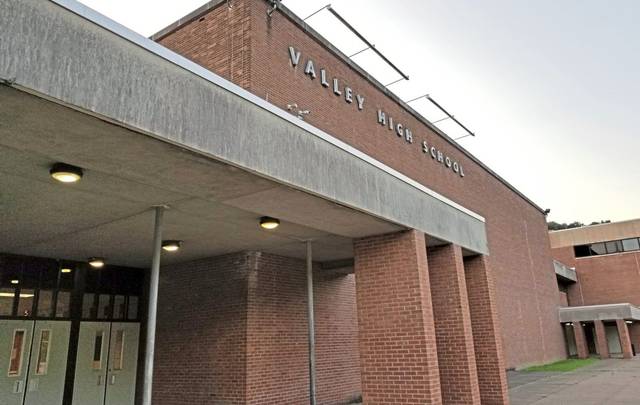New Kensington-Arnold considers property tax increase to address 'bleak' financial picture
New Kensington-Arnold School District’s financial picture for the coming school year looks “bleak,” with officials considering raising taxes and burning through the district’s reserves but still facing a deficit, according to Acting Superintendent Jon Banko.
“We’ve been about as fiscally responsible as we possibly could be,” Banko said. “We closed two schools, we’ve reduced our faculty, we’ve done a lot of things to keep the budget under control.”
Property owners in New Kensington-Arnold could see their school property taxes go up nearly 7% for next school year.
At the same time, the district’s preliminary budget shows it spending more than $1 million than it would take in, depleting its reserves and ending the 2021-22 school year in the red with a nearly $400,000 deficit.
“It’s looking bad, but it’s not any different than it has been the last four or five years,” Banko said. “We still want to be able to provide the best education possible.”
In a legal ad, the district said it might need to increase property taxes by more than its state-imposed inflation limit, which is 4.4%.
The preliminary budget shows a 6.8% increase in property taxes. That would increase the tax rate by 6 mills, to 94.27 mills. At that rate, the owner of a property assessed at $20,000 would owe $1,885 in taxes, or $120 more than this year.
Banko said the potential tax increase could come down as administrators refine the budget and figures become clearer. But he said, “It’s hard to say how it’s going to play out.”
The district increased taxes by 3.5%, or 3 mills, for this school year. That was under the district’s 3.9% limit for the 2020-21 school year.
To exceed its limit without voter consent, the district said it would seek approval of a referendum exception from the state Department of Education or county court. Banko said the district would base its request on special education spending.
The district’s preliminary budget shows spending of about $38.88 million on revenue of about $37.85 million. The district would start the next fiscal year with reserves of about $645,000, leaving a deficit of about $385,000.
Banko said that because of the pandemic, the district has seen a $500,000 increase in its cost for cyber charter schools, pushing it over $2 million. Enrollment in the schools has increased by another 40 to 60 students.
The preliminary budget does not include any staff furloughs, but Banko said staffing decisions would be made soon. At the same time, the district is in contract talks with its teachers union.
The district initially laid off 28 teachers as part of the 2020-21 budget, but later recalled all but one of them.
While not seeing the district as able to make any more changes to its facilities, Banko said the district will again look to sell the Edgewood property on Knollwood Road, where Edgewood Elementary stood until it was closed and demolished.
The district did not include any money from a second wave of pandemic-related funding in its preliminary budget, but Banko said the district expects to get $5.2 million.
“A lot of the extra costs we’ve incurred due to the pandemic, we’re going to be able to use that money for that,” he said. “It’s definitely going to help. I would hope it would help keep us in the black at the end of the year.”
The preliminary budget is available for public inspection at the district’s offices, 707 Stevenson Blvd., and on the district’s website. The school board is expected to vote on the budget at its Feb. 2 meeting.
Brian C. Rittmeyer is a TribLive reporter covering news in New Kensington, Arnold and Plum. A Pittsburgh native and graduate of Penn State University's Schreyer Honors College, Brian has been with the Trib since December 2000. He can be reached at brittmeyer@triblive.com.
Remove the ads from your TribLIVE reading experience but still support the journalists who create the content with TribLIVE Ad-Free.

